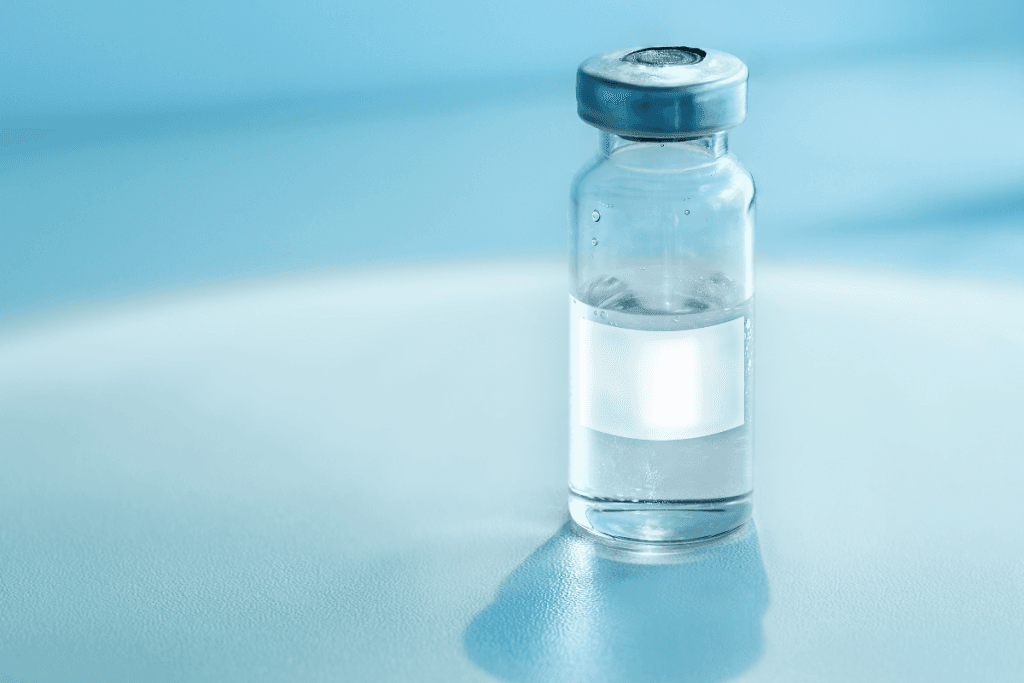Remicade medication is an IV biologic used in several immune-mediated inflammatory diseases. For infusion clinics, it raises practical questions beyond clinical selection. You need clean documentation, consistent workflows, and clear escalation pathways. You also need reliable sourcing and traceability, since biologics are sensitive and tightly regulated. This briefing summarizes what clinic teams commonly prepare for: where infliximab fits, what the infusion visit typically entails, and how to frame safety monitoring and interaction screening in a compliant, operational way.
Rheumatology Product Category pages can help teams map related biologics. For clinical background, the site’s Rheumatology Articles hub is a useful starting point.
Key Takeaways
- Confirm indication, baseline screening, and vaccination status per label.
- Standardize infusion documentation, including lot and reaction timing.
- Plan for infusion reactions and delayed symptoms after discharge.
- Screen for interactions, especially other biologics and live vaccines.
- Maintain traceability and storage controls for specialty biologics.
Where Remicade medication Fits in Care Pathways
Infliximab is used for inflammatory conditions where TNF-α (tumor necrosis factor alpha) plays a key role. In practice, referral patterns differ by specialty and site capability. Rheumatology often coordinates long-term immunomodulator plans, while gastroenterology may focus on induction and maintenance strategies for inflammatory bowel disease. Your infusion service typically sees the downstream effects of those decisions: scheduling cadence, pre-infusion checks, and longitudinal monitoring.
Because it is administered by infusion, clinic infrastructure matters. Staffing, observation space, emergency supplies, and consistent note templates all influence safety and throughput. It also affects patient access, since infusion chair time competes with other therapies. Many sites therefore define which conditions they support in-house, and which require coordination with a hospital-based unit.
Common labeled indications
On the U.S. label, infliximab is indicated for several immune-mediated diseases, including rheumatoid arthritis (with methotrexate), Crohn’s disease, ulcerative colitis, ankylosing spondylitis, psoriatic arthritis, and plaque psoriasis. Clinics often triage operational needs by indication. For example, a gastroenterology cohort may have different baseline labs and infection-risk discussions than a rheumatology cohort, even when the infusion workflow is similar. When your team builds templates, keep indication-specific fields optional rather than hard-coded.
Why it matters: Indication-specific documentation supports cleaner prior authorization and audits.
Supply pathways are typically limited to licensed healthcare entities with credential verification.
For related clinic education on RA pathways that involve injectable and infused agents, see Injection Therapy for RA. If you are benchmarking other infusion-administered biologics used in GI care, you may also encounter options like Entyvio Product Listing depending on your formulary approach.
Mechanism, Drug Class, and Naming Basics
Remicade is a brand name for infliximab. In clinical terms, it is a chimeric monoclonal antibody (lab-made antibody) that targets TNF-α. This places it in the anti-TNF class. From an operational lens, the drug classification matters because it drives class warnings, vaccination constraints, and common interaction screens.
The question “is Remicade a biologic” comes up frequently in intake and payer documentation. The answer is yes. Biologics are produced in living systems and can be sensitive to handling and storage conditions. That also means product traceability and lot-level documentation are not just “nice to have.” They support pharmacovigilance and post-market reporting.
In many settings, Remicade medication is discussed alongside biosimilars and other TNF inhibitors. Clinics should align terminology across front desk, nursing, and billing. Small naming inconsistencies can trigger avoidable denials or medication errors. Build pick-lists in the EHR that distinguish brand, generic, and any formulary-specific naming conventions.
| Quick definitions | What clinic teams mean by it |
|---|---|
| Generic name | The nonproprietary name, here infliximab. |
| Biologic | A therapy made in living systems, not a simple chemical drug. |
| Anti-TNF | A class that blocks TNF-α to reduce inflammatory signaling. |
| Immunogenicity | Antibody formation that can affect response or reactions. |
| Infusion reaction | Symptoms during or soon after infusion that need assessment. |
| Biosimilar | A highly similar biologic to a reference product, not identical. |
For a contrasting mechanism in rheumatology, clinics may compare anti-TNF therapy with IL-6 inhibition. The background article Actemra Injection Overview is a practical reference for terminology and common monitoring themes.
Infusion Visit Workflow: What to Standardize
Even when prescribing decisions happen elsewhere, infusion sites carry the operational risk. Standardization reduces variability and supports safe escalation. Most infusion teams build a consistent “start-to-finish” flow: intake verification, baseline vitals, IV access, medication preparation per site policy, administration, observation, and discharge education that matches the prescriber’s plan.
Clinics often also need a simple way to reconcile the referral order with what arrives in the medication room. That includes documenting product name, dosage form, lot number, and expiration date in a way that is retrievable. If you support multiple specialties, keep the infusion note modular. You can then add indication-specific fields without rewriting the whole template.
What the infusion suite needs ready
At minimum, teams usually confirm identity, allergies, active infection screening prompts, and any pre-infusion labs or screenings required by the ordering clinician’s protocol. During and after infusion, capture start and stop times, patient-reported symptoms, and any interventions taken under standing orders or prescriber instructions. Delayed effects can matter too. Some patients report fatigue, headache, or nonspecific symptoms the day after infusion, and those reports often drive triage calls. Building a structured “post-infusion symptoms” field helps nurses document what happened and when, without relying on free text.
Quick tip: Use one EHR template for timing, symptoms, and interventions across all infusions.
When staffing and scheduling, consider chair time variability and observation needs. If your clinic also handles subcutaneous biologics, cross-training can reduce bottlenecks. The site’s Lifestyle Guide for RA Practitioners can support consistent patient education messaging that stays within clinician-approved boundaries.
Remicade medication workflows benefit from a written protocol document that clearly assigns responsibilities. Policies vary by facility and state, so keep the protocol aligned with your medical director and pharmacy leadership.
Safety Profile: Common, Serious, and Delayed Effects
When clinic teams discuss remicade side effects, it helps to separate expected, manageable effects from events that require urgent escalation. Infusion reactions can occur during administration or shortly after. Clinics typically plan for symptom recognition, immediate assessment, and documentation that supports subsequent dosing decisions by the prescriber. Because infliximab is an immunomodulator, infection risk screening is also a recurring operational theme.
Longer-term risks are generally addressed in prescribing visits, but infusion teams still need awareness. Labeling includes warnings related to serious infections and certain malignancies, among other risks. The practical takeaway is process-based: ensure intake screening is consistent, and that post-infusion symptom reporting has a defined escalation route. Avoid informal “watch and wait” advice. Instead, document and route concerns to the prescribing team using agreed pathways.
Day-after and delayed symptoms
Some patients contact clinics about side effects the day after remicade infusion. Reports may include fatigue, headache, myalgias (muscle aches), or flu-like symptoms. While these reports are often nonspecific, timing matters for differential assessment and reporting. Encourage staff to document onset, duration, and associated red flags, rather than labeling symptoms as “expected.” Also note that weight changes can be multifactorial. If patients mention swelling, rapid weight gain, or shortness of breath, staff should follow the clinic’s triage policy and coordinate with the ordering clinician.
Remicade medication education at discharge should stay consistent with the label and your clinic’s scope. It is reasonable to remind patients to report infection symptoms promptly and to avoid self-starting leftover antibiotics. The clinical decision, however, belongs with the prescriber or covering service.
Interactions, Infections, and Concomitant Therapy Questions
Operationally, interaction screening is where infusion sites can prevent avoidable harm. The highest-yield checks usually include: current biologics, recent live vaccines, new antibiotics, and concurrent systemic steroids. Questions like “getting a cold while on remicade” often show up as nursing messages. Your team’s job is to capture key facts and route them, not to make treatment decisions. A structured intake questionnaire can reduce variability and missed details.
For “can I take antibiotics while on remicade,” the safest clinic-facing stance is process-oriented. Confirm the antibiotic name, start date, indication, and current symptoms, then notify the prescriber per policy. The same approach applies to “can you take prednisone while on remicade.” Steroids may be used in some care plans, but coordination matters because infection risk and symptom masking are real operational concerns.
Products supplied for clinics are typically brand-name units obtained through screened distribution channels.
Also consider interaction logic within your EHR. If your site supports other infused or injected immunomodulators, ensure medication reconciliation captures them accurately. For example, clinicians may compare anti-TNF therapy with abatacept or IL-6 inhibition. If your inventory includes related therapies, pages like Orencia 250 mg Vial and Actemra Product Listing can help your team align naming across ordering, receiving, and charge capture.
Procurement, Traceability, and Handling in Licensed Settings
Biologic infusion programs run on reliable inventory controls. At a minimum, you need repeatable receiving steps, storage checks, and traceability that supports both clinical documentation and billing. In many clinics, a single discrepancy between what was ordered, what was received, and what was administered creates hours of rework. Create a reconciliation step that ties the referral, the medication record, and the administration note together.
Handling requirements differ by product and formulation, so avoid “one-size-fits-all” rules. Follow the official prescribing information and your facility’s pharmacy policies for storage conditions, preparation area controls, beyond-use dating, and disposal. If your clinic uses US distribution channels, confirm that your documentation supports any chain-of-custody or pedigree expectations that apply to your setting.
Clinic workflow snapshot
Many infusion sites use a simple workflow that separates clinical and supply responsibilities. A common model is: verify patient and order → confirm required screenings are on file → receive and log product → store per policy → prepare and administer per protocol → observe and document events → record lot and expiration for traceability → reconcile charges and clinical note. This is not a regulatory template, and your compliance team may add steps. Still, it keeps roles clear when staffing changes or volume increases.
- Order match
- Licensure on file
- Lot and expiry logged
- Storage checks recorded
- Administration times captured
- Reaction details time-stamped
- Charge capture reconciled
Remicade medication supply should be documented with lot-level traceability whenever feasible. If your team also stocks the reference product or related listings such as Remicade 100 mg Vial, keep naming and item masters consistent across receiving and charting to reduce selection errors.
Some suppliers require proof of facility licensure before fulfilling specialty biologics.
As you compare operational fit across therapies, include nonclinical factors. These may include chair time, monitoring requirements, and how easily your EHR supports the needed documentation. For GI-focused infusion suites, adding another therapy class may also mean coordinating separate nursing competencies and adverse event pathways. For example, some clinics stock alternatives like Entyvio Product Listing based on prescriber preference and patient factors.
Authoritative Sources
For clinic policy, the highest-priority source is the current U.S. prescribing information. It defines labeled indications, contraindications, boxed warnings, preparation guidance, and vaccination cautions. Infusion centers should make the label easy to access in the medication room and within the EHR, since it supports consistent nursing education and documentation language.
Beyond labeling, professional society guidance and disease-foundation resources can help standardize patient education and triage scripts. Use them to align language across specialties, especially when your infusion suite serves both rheumatology and gastroenterology. Keep in mind that guidelines evolve, and payer policies can shift. Re-review sources periodically, and document the version used when updating internal protocols. Reliable US logistics may support continuity, but clinical governance still rests on current references.
- FDA drug database entry for infliximab products
- American College of Rheumatology
- Crohn’s & Colitis Foundation
Further reading should focus on your highest-volume indication first. For many infusion clinics, that means tightening intake screening, standardizing adverse event documentation, and reducing naming variance across systems. Remicade medication is a useful case study because it touches clinical risk, payer complexity, and traceability needs in one workflow.
This content is for informational purposes only and is not a substitute for professional medical advice.






